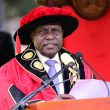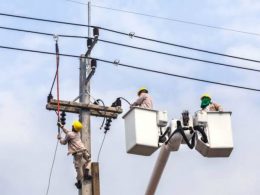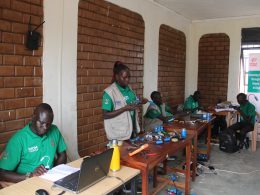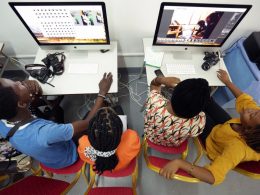By Mark Kawalya
Plans are underway for Kenya to roll out her first batch of one million locally assembled smartphones that will retail for about UGX149,000 in a move aimed at accelerating digital access and inclusion.
Eliud Owalo, the ICT Cabinet Secretary, said that a large percentage of the Kenyan population is not able to afford smartphones, which is a major impediment to digital inclusion. Producing the devices locally is a possible workaround to this issue.
Owalo added that the low-cost smartphones are being assembled in Machakos County at the Konza Technopolis in Malili.
“Based on feasibility studies undertaken, we can locally assemble smartphones at a unit cost of about $40. We’ve partnered with the private sector to ensure that in the next two months we can roll out our first consignment of low-cost smartphones,” Owalo announced at the official launch of the Information, Communication, and Technology (ICT) week at the Nairobi Safari Park.
“We are aware of the affordability crisis of smart devices as a potential hindrance to the ability of citizens to tap the full potential that this sector presents, and we have actively engaged stakeholders in the private sector and manufacturing to produce low-cost smartphones,” Owalo added.
Statistics from the Communications Authority of Kenya (CAK) indicate a feature phone penetration rate of 68.1 percent as of the end of December 2022.
“The number of mobile subscriptions increased from 65.5 million reported last quarter to 65.7 million during the reference period, representing a penetration rate of 133.1 percent,” information from CAK states in the latest quarterly report.
According to Owalo, the low uptake of smartphones in Kenya has been a major hindrance to the uptake of government and financial services.
Aside from locally assembling smartphones, the government has plans to accelerate digital inclusion by laying out 5,000km of the planned 100,000km of fiber optic cable by June of this year. This project is partially funded by the World Bank. Owalo added that $500 million has been set aside by the World Bank for this digital inclusion exercise that will roll out fiber connections across the country.
“We have received $500 million from the World Bank towards the digital transformation agenda, under the Kenya digital economy acceleration program,” Owalo said.








